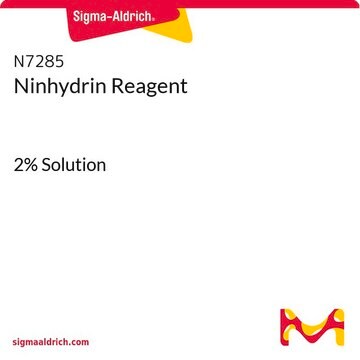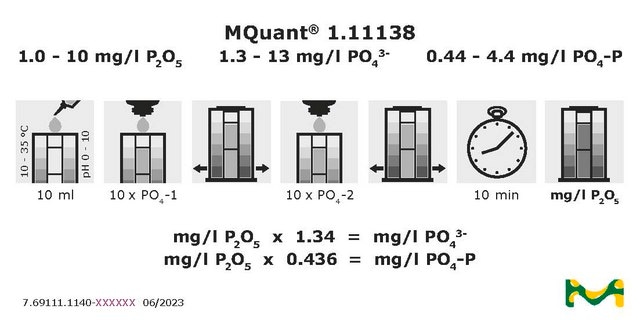MAK308
Phosphate Assay Kit
sufficient for 500 colorimetric tests
About This Item
Recommended Products
usage
sufficient for 500 colorimetric tests
detection method
colorimetric
relevant disease(s)
gastrointestinal diseases; cardiovascular diseases
storage temp.
2-8°C
Related Categories
General description
Application
- Phosphatase Assays: liberation of phosphate from peptide, protein, or small molecule substrate.
- Lipase Assays: liberation of phosphate from phospholipids
- Nucleoside Triphosphatase Assays: liberation of phosphate from nucleoside triphosphates (ATP, GTP, TTP, CTP etc).
- Quantitation of phosphate in phospholipids, proteins and DNAs, etc.
- Drug Discovery: high-throughput screen for phosphatase inhibitors.
Features and Benefits
- High sensitivity and wide detection range: detection of as little of 20 pmoles of phosphate and useful range between 0.4–50 µM phosphate.
- Fast and convenient: homogeneous “mix-andmeasure” assay allows quantitation of free phosphate within 30 minutes.
- Compatible with routine laboratory and HTS formats: assays can be performed in tubes, cuvettes, or microplates, on spectrophotometers and plate readers.
- Robust and amenable to HTS: Z factors of 0.7–0.9 are observed in 96 well plates. Can be readily automated on HTS liquid handling systems.
Suitability
Principle
Signal Word
Warning
Hazard Statements
Precautionary Statements
Hazard Classifications
Met. Corr. 1
Storage Class Code
8B - Non-combustible corrosive hazardous materials
WGK
WGK 1
Flash Point(F)
Not applicable
Flash Point(C)
Not applicable
Regulatory Listings
Regulatory Listings are mainly provided for chemical products. Only limited information can be provided here for non-chemical products. No entry means none of the components are listed. It is the user’s obligation to ensure the safe and legal use of the product.
PDSCL
Please refer to KIT Component information
PRTR
Please refer to KIT Component information
FSL
Please refer to KIT Component information
ISHL Indicated Name
Please refer to KIT Component information
ISHL Notified Names
Please refer to KIT Component information
Cartagena Act
Please refer to KIT Component information
JAN Code
キットコンポーネントの情報を参照してください
Certificates of Analysis (COA)
Search for Certificates of Analysis (COA) by entering the products Lot/Batch Number. Lot and Batch Numbers can be found on a product’s label following the words ‘Lot’ or ‘Batch’.
Already Own This Product?
Find documentation for the products that you have recently purchased in the Document Library.
Customers Also Viewed
Our team of scientists has experience in all areas of research including Life Science, Material Science, Chemical Synthesis, Chromatography, Analytical and many others.
Contact Technical Service







